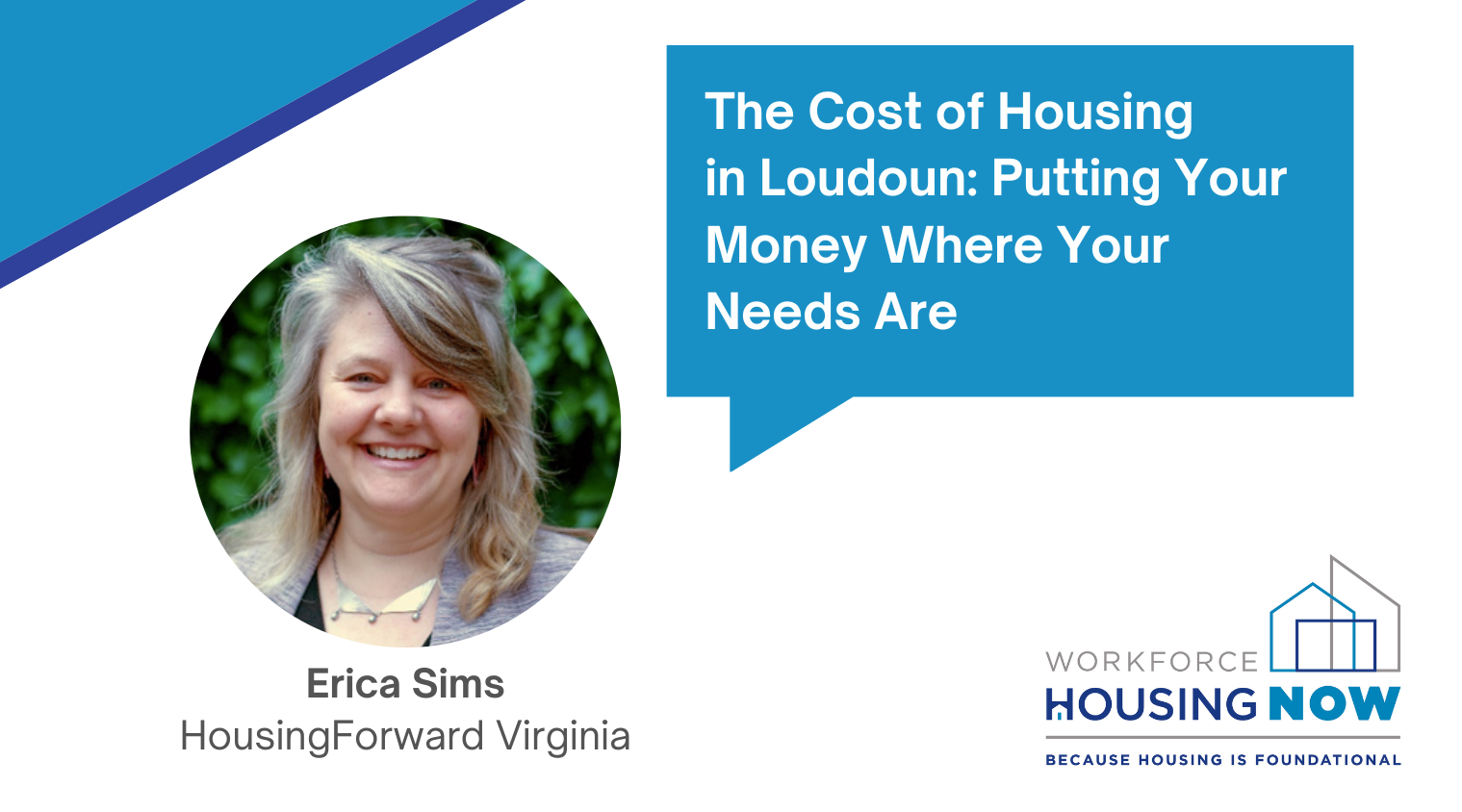Written by Erica Sims, HousingForward Virginia
Loudoun County is one of seven localities in Virginia to operate a local housing trust fund to finance new housing production. Loudoun joins more than 800 localities around the country that recognize the magical impact local funds have on the housing ecosystem.
Housing trust funds are one of the single most effective tools localities have to combat housing unaffordability. Earlier this year, Loudoun made the significant step in identifying a source of funds for this work. It’s yet another step on a long and historic path towards strengthening Loudoun’s housing market.
The growth in local housing trust funds is directly related to the federal government’s significant disinvestment in housing programs. Federal spending on housing has decreased by 30 percent relative to GDP since 1980. Over this time, localities increasingly assumed this responsibility. The reason for this is as clear as Loudoun’s recent Workforce Housing Now campaign—housing is foundational.
Housing trust funds are designed with the community’s priorities from the ground up. Localities have full control over the fund’s administration and awards. Funds can therefore be more nimble and flexible than larger programs run by state or federal housing agencies, allowing greater flexibility to address emergent and rapidly changing housing needs.
Flexibility can also lend itself to innovation. For example, California’s San Mateo County’s Housing Trust Fund used a portion of its funds to create green architectural plans and a unique financing mechanism for the county’s new accessory dwelling unit program.
But the real magic is in a local housing funds’ ability to serve as leveraged and gap financing. For every $1 of local funds invested in a project, at least another $6 in private or other public funds are leveraged. Loudoun’s $5.9 million this year will seed over $35 million in additional investment in Loudoun County.
Successful housing trust funds build a reputation as effective tools to combat housing issues. This can often mean attracting new, outside capital as investment. Earlier this year, in Greenville South Carolina, the local housing trust fund announced that $4 million dollars were contributed from 15 local, private-sector investors. Businesses, foundations, and private individuals in the community saw the local housing trust fund as a logical and efficient conduit to workforce housing production and invested in it. In the city of Ithaca New York, the major employer there, Cornell University, provides regular, ongoing financial contributions to their community’s fund.
Housing trust fund dollars serve as “gap” funding – the difference between a project being completed or staying on paper—the “last mile” of funding needed to bring a project to fruition. In this way, local dollars play an outsized role in effectuating new housing production in communities. Loudoun has made great strides in using this tool and has great opportunities in the future to continue this trend.
Erica Sims has worked with HousingForward Virginia for five years, most recently as co-executive director. HousingForward Virginia is the commonwealth’s trusted resource for affordable housing data and actionable insights. Advocates, planners, developers, and mission-aligned organizations rely on us to help them build connections and advance their work. With our tools, they’re able to better identify needs, influence decision makers, and ultimately increase access to affordable housing for all.
About Erica Sims
Sims has worked in nonprofit management, affordable housing development and community organizing fields for over 20 years. Her focus has been on social and economic justice through housing and economic development.
She has held private sector, nonprofit and government roles and has overseen the development of over 2,500 units of affordable housing and 50,000 square feet of commercial development space in new construction and renovation projects.
Prior to joining HousingForward, she acted as deputy executive director of Mutual Housing Association of New York, a nonprofit affordable housing developer, owner and manager with a portfolio of over 1,500 units of affordable housing. She received a bachelor’s in economics and a bachelor’s in urban planning from the University of Michigan and a MBA from MIT.
Led by the Community Foundation for Loudoun and Northern Fauquier Counties, What is the Cost of Loudoun Housing is part of the Workforce Housing Now (workforcehousingnow.org) community service effort amplifying Loudoun’s voice for workforce housing as the missing ingredient to our community’s prosperity.





